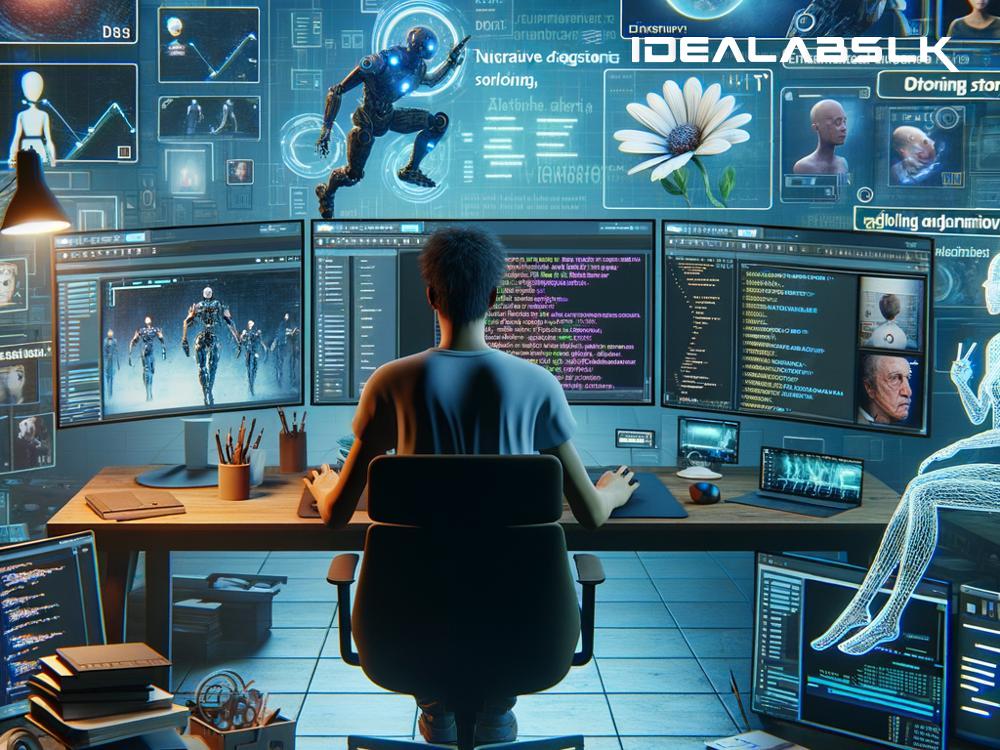Title: The Future of Game Storytelling: How AI is Set to Revolutionize Our Adventures by 2025
As we close in on 2025, the gaming world stands on the brink of a remarkable revolution that's poised to change how we experience stories within games. The hero behind this transformation? Artificial Intelligence (AI). Gone are the days when games had a one-size-fits-all storyline. The future of game storytelling is about to get a lot more personalized and adaptive, thanks to the magic of AI. Let’s dive into how this technology is shaping up to create a new era of gaming narratives.
Personalized Gaming Narratives Imagine playing a game that knows you. Not just your gameplay style, but your preferences, your emotional triggers, and even your moral compass. AI is making this possible. By understanding and analyzing your in-game choices, AI can tailor the storyline to suit your personal preferences, ensuring that every journey through the game feels uniquely yours. This could mean alternate endings, divergent plots, or character developments that reflect your own values and decisions, making the game an extension of you.
Emotional Engagement and AI One of the biggest leaps forward in using AI for game storytelling is in emotional engagement. Through sophisticated algorithms, games can now adapt to evoke stronger emotional responses from players. If the AI detects that you’re getting bored, it might throw in a twist to pique your interest. Feeling frustrated? The game could offer an unexpected helping hand. This level of emotional interactivity promises to make gaming experiences more intense and satisfying.
Adaptive Difficulty and Storylines Another exciting development is adaptive difficulty, influenced by the player's performance and choices. AI can adjust the challenge level in real-time, not just making enemies harder or easier to beat, but altering story elements to provide a more seamless and engaging experience. For example, if you’re struggling with a particular mission, the storyline might evolve to provide an ally or a new strategy, keeping the narrative flow without breaking immersion.
The Role of Natural Language Processing (NLP) As AI continues to evolve, so does its ability to understand and generate human language through Natural Language Processing (NLP). This means NPCs (Non-Player Characters) can have deeper, more meaningful interactions with players. Conversations could go beyond pre-defined options, allowing for more natural and varied dialogue that can influence the story in real-time. Imagine having a heart-to-heart with a game character that truly understands your responses, or being able to command your in-game allies with voice commands that feel natural and intuitive.
Challenges and Ethical Considerations While the horizon looks promising, blending AI with game storytelling is not without its challenges. The complexity of creating narratives that can adapt to countless variables means developers are facing a monumental task. Moreover, there’s the ethical consideration of how much data the AI collects about players to personalize experiences, and how this data is used and stored. Striking the right balance between personalization and privacy will be key.
The Future Is Here The vision for 2025 suggests a gaming landscape where each player's experience can be drastically different, molded not just by their choices but by an AI that understands and adapts to them personally. From RPGs (Role-Playing Games) to adventure games, the narrative possibilities are endless. As AI continues to learn and evolve, so too will the stories we partake in, breaking the barriers between player and game. The narratives of tomorrow hold promises of greater immersion, emotional depth, and personal significance.
In Conclusion The fusion of AI and game storytelling is set to redefine our gaming experiences. By 2025, expect games that not only challenge your skills but engage your emotions and morals more deeply than ever before. This isn't just about playing a game; it's about embarking on a journey that reflects who you are, evolves with you, and offers endless, personalized adventures. The future of gaming is not just about more realistic graphics or smoother gameplay; it's about stories that adapt, engage, and resonate on a personal level. So, here's to the future of gaming - a future where every playthrough has the potential to be as unique as the player themselves.

